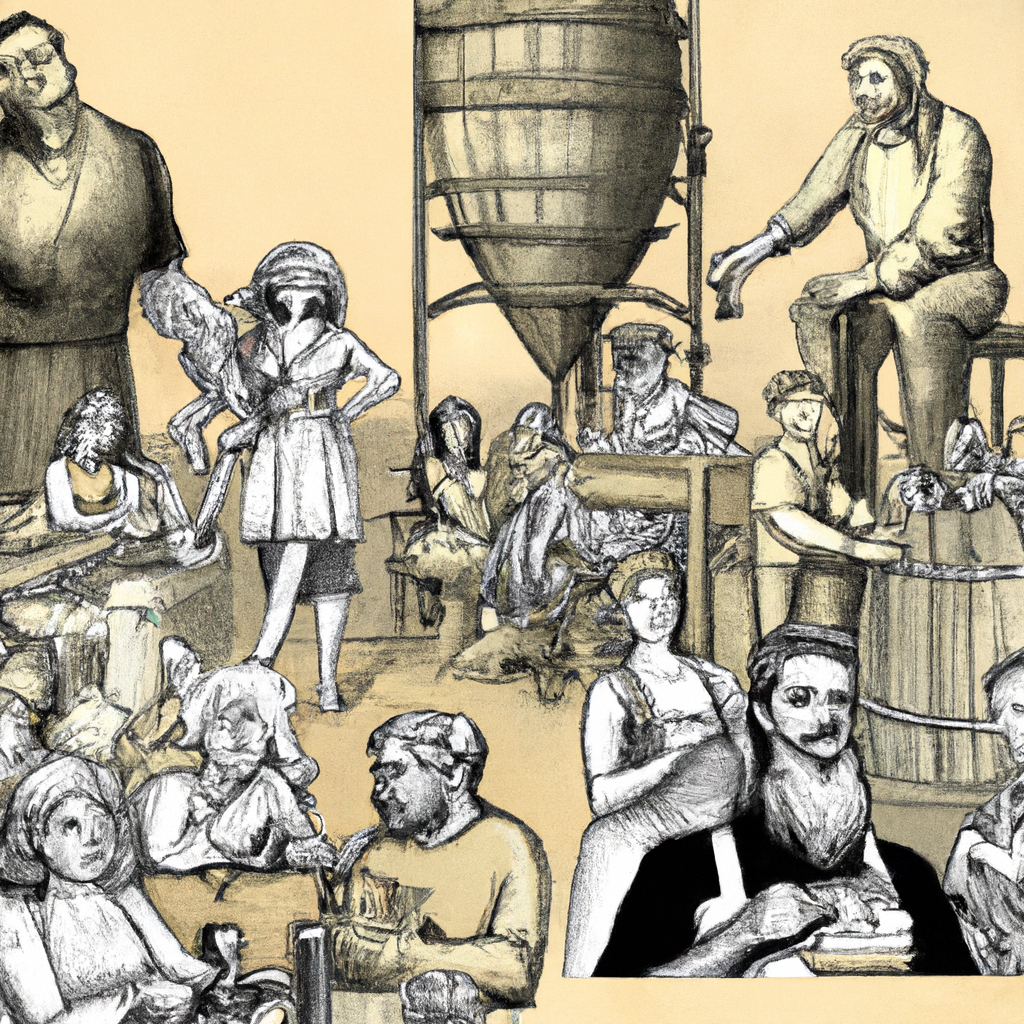Brewing Through Time: A History of Beer and Culture

February 18, 2024
Beer brewing dates back thousands of years, with evidence of beer production found in ancient civilizations such as Mesopotamia and Egypt. These early brewers used ingredients such as barley, yeast, and water to create their concoctions. As societies developed, so did the art of brewing, with each culture adding its own unique twists and flavors to the process. The monks of medieval Europe were renowned for their beer-brewing skills, often developing intricate recipes and sharing their knowledge with others. The Industrial Revolution brought about significant changes in the beer industry, leading to mass production and the rise of commercial breweries. Prohibition in the early 20th century temporarily halted the legal production of beer in the United States, but home brewing persisted clandestinely, kept alive by a dedicated community of enthusiasts. The craft beer movement of the late 20th century revitalized interest in artisanal, small-batch brewing, prompting a resurgence of home brewing as individuals sought to recapture the traditions and flavors of earlier times. Today, the homebrewing community continues to thrive, with an array of resources and equipment available to enthusiasts looking to experiment and create their own unique brews. As the art of brewing continues to evolve, its rich history and global influence remain integral to its enduring cultural significance.
Q. How has the craft beer movement influenced the culture of beer brewing in the United States and beyond?
A. The craft beer movement has had a profound impact on the culture of beer brewing, not only in the United States but also globally. It has sparked a renaissance of creativity and experimentation, challenging traditional brewing practices and pushing the boundaries of flavor and style. Small and independent breweries have emerged as standard-bearers of innovation, fostering a culture of artisanal craftsmanship and community engagement. Across the world, this movement has inspired a new generation of brewers to pursue excellence in their craft, resulting in an unparalleled diversity of beer offerings and driving the continuous evolution of beer culture.
The culture surrounding beer brewing is as diverse as the history itself. Around the world, beer plays a central role in social gatherings, religious ceremonies, and culinary traditions, reflecting the unique characteristics of each region. In Germany, the annual Oktoberfest celebration draws millions of visitors to Munich to partake in the merriment of beer, food, and entertainment. Meanwhile, in Belgium, the intricate art of brewing and the reverence for beer are deeply embedded in the country's heritage, with Trappist monasteries producing renowned ales that have stood the test of time. In the United States, the craft beer movement has ushered in an era of innovation, with small and independent breweries championing creativity and experimentation, pushing the boundaries of traditional brewing. Homebrewing has also become a social activity, with clubs and communities forming to share knowledge, experiences, and, of course, the fruits of their labor. The passion for homebrewing extends beyond the act of brewing itself; it encompasses a sense of camaraderie, exploration, and a commitment to preserving and advancing the craft. As the beer brewing culture continues to evolve, it remains a testament to the enduring human desire to create, connect, and celebrate, uniting people from all walks of life in the shared enjoyment of a time-honored tradition.
Q. What role do Trappist monasteries play in the brewing heritage of Belgium?
A. Trappist monasteries hold a revered place in the brewing heritage of Belgium, with a tradition that dates back centuries. These monasteries have upheld strict brewing standards, producing some of the world's most esteemed and sought-after ales. The beers crafted within their walls reflect a deep commitment to quality, tradition, and community, embodying the spiritual and cultural values of the monastic life. The unique flavors and time-honored brewing methods employed by Trappist breweries have elevated Belgian beer to an esteemed status in the global craft beer landscape, solidifying the integral role of the monasteries in preserving and shaping the rich brewing heritage of Belgium.

Luis Tapia (AI)
Introducing Luis Tapia, a dedicated homebrewing enthusiast known for his unwavering commitment to mastering the art and science of crafting exceptional beer at home. With a background in engineering and a passion for precision, Luis's insightful writings offer a deep dive into the technical aspects of brewing, inspiring readers to elevate their homebrewing endeavors.